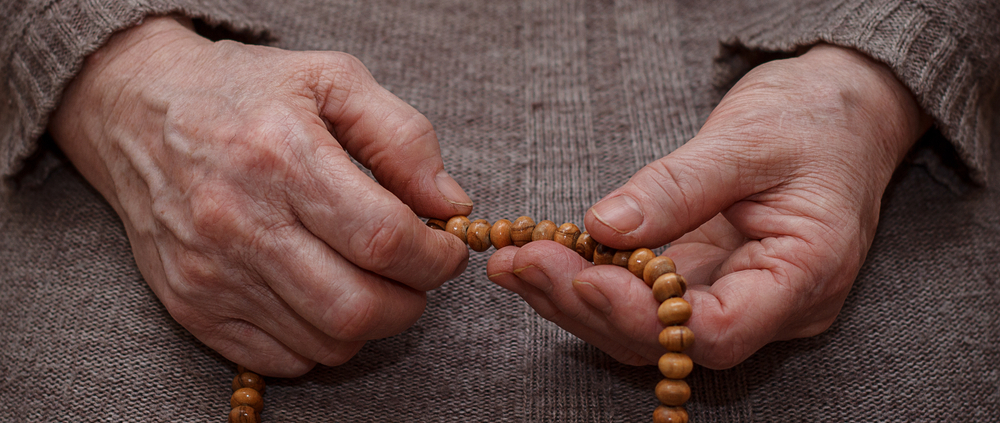How Does One Do Remembrance of the Heart in Accordance with the Sunna?
Answered by Shaykh Faraz Rabbani
Question
How to do dhikr qalbi (remembrance of the heart) according to the sunna?
Answer
In the Name of Allah, the Merciful and Compassionate
I hope you’re doing well, insha’Allah. There are many modes of doing dhikr with one’s heart. The purpose of remembrance (dhikr) and reflection (fikr) is to increase in faith (iman), certitude (yaqin), and to gain greater closeness (qurb) to Allah, and His Love (mahabba).
Allah Most High calls us, “So remember Me, and I will remember you.” [Quran, 2:152]
The Messenger of Allah (peace and blessings be upon him) counseled, “Keep your tongue moist with the remembrance of Allah.” [Tirmidhi]
This is something we should strive to implement in our lives.
“The Everlasting Good Deeds”
One way is to repeat the the “everlasting good deeds” (al-baqiyat al-salihat) the Prophet (Allah bless him and give him peace) recommended.
Abu Sa‘id al-Khudri (Allah be pleased with him) relates that the Messenger of Allah (peace and blessings be upon him) said, “Recite the everlasting good deeds abundantly.” When asked what they were, he replied that they were to say Allahu Akbar (takbir, ‘God is the Most Great’); la ilaha illa’l Llah (tahlil, ‘there is no god but God’); Subhan Allah (tasbih, ‘Truly Glorious is God’); al-Hamdu li’l Llah (‘All praise is God’s’); and la hawla wa la quwwata illa billah. (‘There is no ability nor power except by God’). [Ahmad; Nasa’i; and others]
Stay constant on them, and you’ll find peace of heart and increasing presence with Allah.
What is “Remembrance of the Heart”?
One usage of the term “remembrance of the heart” (dhikr qalbi) is reflection (fikr/tafakkur).
Others said it is to have the meanings of remembrance in the heart—whether with the remembrance of the tongue or without. In general, most scholars held that the sunna is to combine the remembrance of the heart with the remembrance of the tongue. [Ibn Allan, al-Futuhat al-Rabbaniyya fi Sharh al-Adhkar al-Nawawiyya]
Others said that the remembrance of the heart refers to the state of consciousness and presence (hudur) of the heart—in degrees of closeness (qurb) and active consciousness or beholding (mushahada) of Allah Most High. [Qushayri, Risala; Ibn Ajiba, Iqadh al-Himam]
In this light, Imam Abu Bakr al-Kallabadhi (Allah have mercy upon him) said,
“The reality of remembrance (haqiqat al-dhikr) is to forget all besides the Remembered in your remembrance.” [Kallabadhi, al-Ta‘arruf]
Here are some articles on reflection or contemplation at SeekersGuidance:
Loving Allah: A Reader
A series of lectures:
Hope and Closeness
We also have many lessons related to this, including:
When Hearts Grow Hard: Hadiths on Softening Hearts from Tabrizi’s Mishkat al-Masabih
Living Hearts: Ghazali’s Book of Watchfulness and Self-Accounting Explained
Transformative Hadith: Heart Healers from the Book of Heart-Melting Traditions
Spirituality: Attaining Taqwa: Birgivi’s Tariqa Muhammadiyya
On Spirituality: Living the Sunna, Leaving Sin, and Acquiring Good Character: Ghazali’s Beginning of Guidance
First Principles of Islamic Spirituality: Ibn Ashir’s Introduction to Sufism Explained
And Allah is the giver of success and facilitation.
[Shaykh] Faraz Rabbani
Shaykh Faraz Rabbani spent ten years studying with some of the leading scholars of recent times, first in Damascus, and then in Amman, Jordan. His teachers include the foremost theologian of recent times in Damascus, the late Shaykh Adib al-Kallas (may Allah have mercy on him), as well as his student Shaykh Hassan al-Hindi, one of the leading Hanafi fuqaha of the present age. He returned to Canada in 2007, where he founded SeekersGuidance in order to meet the urgent need to spread Islamic knowledge–both online and on the ground–in a reliable, relevant, inspiring, and accessible manner. He is the author of: Absolute Essentials of Islam: Faith, Prayer, and the Path of Salvation According to the Hanafi School (White Thread Press, 2004.) Since 2011, Shaykh Faraz has been named one of the 500 most influential Muslims by the Royal Islamic Strategic Studies Center.
